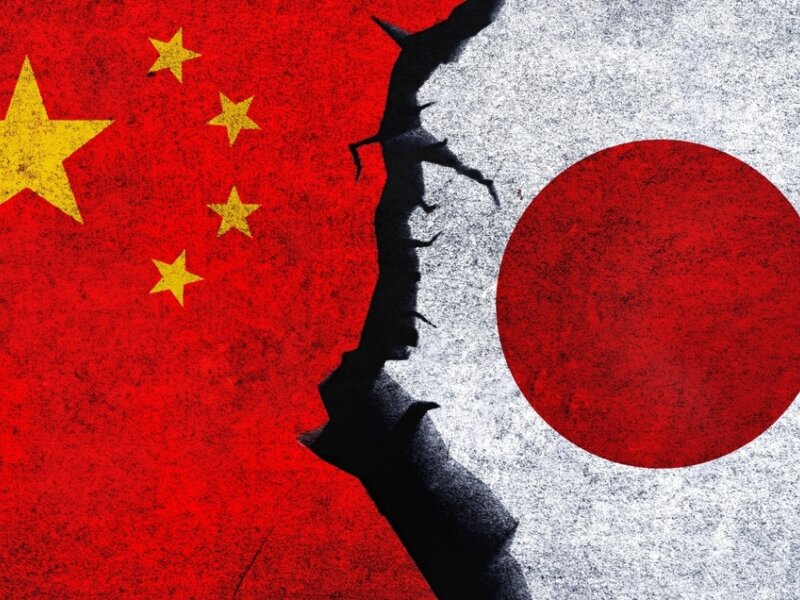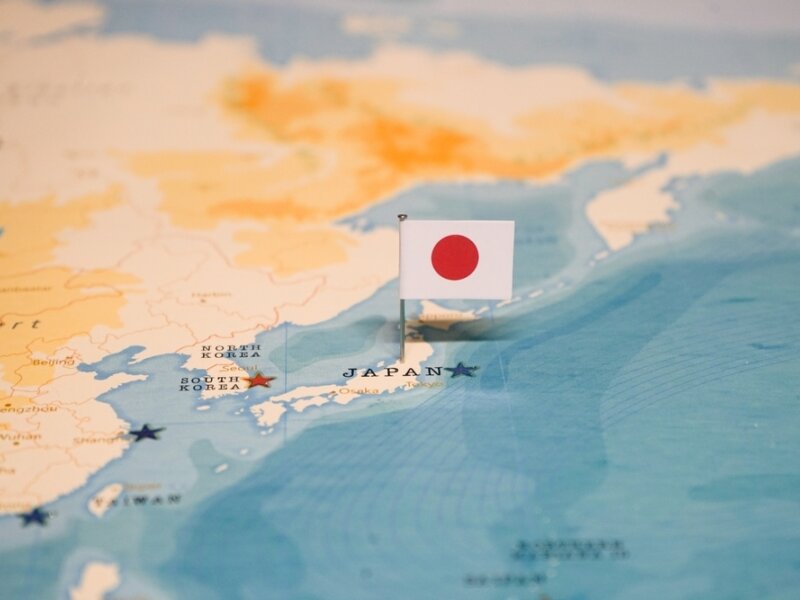The Growing Chinese Presence in the Mediterranean
The Mediterranean may appear to be a geographically remote area for China, yet it has been present in numerous countries for more than two decades. An analysis by Claudia De Martino.

The Mediterranean seems a relatively distant and remote geographical area for the People’s Republic of China, yet it has shown interest in the region for the past twenty years. Certainly, this interest differs from the more assertive policies Beijing adopts towards Taiwan, its rivalry with India, its hegemony in the South China Sea islands, and neighboring countries like Malaysia and the Moluccas. Rather, it reflects a more discreet approach of signing agreements with distant countries located along vital maritime routes for the Belt and Road Initiative (BRI) or as potential expansion markets for “Made in China” products. Some major private (Shanghai International Port Group, China Merchants) or state-owned giants (COSCO, China Communications and Construction Company) contribute to the growth of this dense worldwide commercial network. According to some analysts, this network “brings a major Asian power well beyond its usual sphere of influence for the first time in contemporary history”.
Thus, Chinese presence in the Mediterranean would represent a new factor: a recent historical development, especially since the beginning of the new century, marked by highly multipolar features and an acceleration of the globalization process that partly echoes the colonial competition among great powers in the late 19th century imperialism. It is a post-ideological world that emerged with the end of the Cold War, surpassing, and shelving American unipolarism in favor of competition among at least three major powers (Russia, China, and the United States) and various other partially independent blocs (such as the European Union, Arab League, African Union), more or less aligned with one of the three major powers depending on circumstances and convenience. Ultimately, it is a world where the global challenge between the US and China emerges as the true economic and political competition among powers in the coming decade, according to a survey (Global Politics Survey, March 4-22, 2024) conducted by the al-Monitor newspaper. According to this survey, 30% of respondents in countries on the Southern shore of the Mediterranean believe China and the United States will have equal influence in the Mediterranean by 2030, with President Xi Jinping currently more popular than President Biden (33.8% versus 21.7%) among Arab public opinion.
Part of this surge in Chinese popularity in the Broader Mediterranean is due to its foreign policy of defending territorial sovereignty and non-interference in the internal affairs of other states. There’s a perception that Chinese investments and aid come “without political strings attached”, meaning they do not impose conditions and constraints, such as those imposed by international financial organizations (IMF and World Bank) or by US and EU development aid on the rule of law, the protection of human rights or economic orthodoxy. It’s a vision of the international order inspired by a “coexistence model” based on a conservative interpretation of the principle of national sovereignty, that must be respected regardless of the state’s international conduct or respect for fundamental human rights.
Chinese foreign policy also emphasizes diplomatic dialogue with all regional actors, without taking sides in the conflicts affecting the region, such as the hostility between Morocco and Algeria over Western Sahara, the competition between Saudi Arabia and Iran, which faces the risk of nuclear escalation, or tensions between Syria and Türkiye on their borders. The only exception to this rule of strict neutrality was the position adopted in the recent Israeli-Palestinian conflict in Gaza, in which Beijing sided from the outset in favor of an immediate ceasefire, sharply criticizing Israel for the high number of Palestinian casualties. This is because the Palestinian issue encounters the support of all Arab countries, including the Gulf oil monarchies, Iran and its Shiite allies, from which Beijing draws most of its energy resources. In exchange for Chinese support for Palestine at the UN Security Council, China secures equally unanimous support from the Arab League for its “One China” policy on Taiwan. Additionally, the “Palestinian issue” allows China to gain soft power and popularity not only among Arab public opinion but also among BRICS countries and the Global South, particularly the African continent, where Beijing seeks to present itself as a country free from colonial temptations, but rather as a trusted ally in legitimate claims for independence. In other words, Palestine is too important for China’s regional trading partners, allowing for a shift from the strict neutrality observed in other circumstances, but not altering the overall framework.
The Mediterranean offers a series of interesting opportunities for expanding Chinese markets. First and foremost, it is not perceived as a homogeneous or unitary zone, but rather as an aggregate of many distinct countries in terms of political culture, foreign and trade policies, and social organization. It includes emerging economies like Türkiye, countries that are considered still developing such as Egypt and Algeria, highly unstable countries in need of immediate reconstruction like Syria and Libya, energy resource-producing countries such as oil (Libya) and gas (Algeria), rapidly expanding tourist markets (Morocco), and stable countries with advanced markets like the coastal countries of the Northern Shore of the Mediterranean, including Italy, France, Spain, and the Balkans. With such diverse countries, China maintains profitable bilateral relations, while also establishing regional associations that, although bringing together more countries in the region in multilateral forums (FOFAC; Forum on China-Africa Cooperation since 2000, CASCF, China-Arab States Cooperation Forum since 2004, CEECF or “17+1” group with Central and Eastern European countries since 2012, or the BRI since 2013), do not foster horizontal relations among member states as much as they facilitate commercial agreements, which are always heavily unbalanced, between China and each of them. In fact, such different countries are all drawn into Beijing’s orbit because it promises each of them a “win-win” relationship, i.e., economic agreements that can provide these countries with loans and investments to revive their strategic sectors in exchange for Chinese industrial and commercial spread. The result of this commercial expansion policy is demonstrated by the adherence of 140 countries and 30 international organizations to the “New Silk Road” or BRI, including Italy until December 2023.
China provides numerous capital-poor developing countries the opportunity to acquire strategic infrastructures, especially ports and railways, which are vital for economic development. In exchange for its investments and aid, Beijing asks for temporary or permanent use of key infrastructure along its “Silk Road,” whose historical endpoint is represented by Venice, a landing point into European continental markets. In the Mediterranean basin alone, Beijing has thus first taken over the management of the Egyptian ports of Port Said (2005) and then Damietta (2007). It then acquired the port of Piraeus (2009) from the Greek government in complete bankruptcy, it almost immediately added to its port network significant stakes (almost 50%) in the management of the ports of Kumport in Türkiye (2015), Valencia (2017), Zeebrugge in Belgium (2018), Savona (Vado Gateway, 2019), Haifa (2021), el-Hamdania in Algeria, and Zarzis in Tunisia, still under construction. Finally, it has also acquired stakes in the ports of Marseille, Malta, the new Moroccan port of Tanger Med, the port of Sines in Portugal, Rijeka in Croatia, and other Italian ports through its corporations, that are only semi-independent from the Government of the People’s Republic, such as China Merchant, with giants like Weichai and International Project 39, for example, interested in managing the port of Taranto, which poses a challenge because it is just twelve kilometers away from the NATO Standing Naval Forces base.
Although China presents these investments as “doubly winning” for both sides, not all of its partner countries are able to maintain balanced bilateral relations with its global trade giants. In many cases, such as those of Algeria, Egypt, and Tunisia, they even incur significant debt. In particular, Algeria has reportedly chosen to accept large Chinese investments (and Chinese labor, totaling 55.000 workers who make up the largest Chinese expat community in the Maghreb and are repatriable upon completion of their work) for the construction of fundamental national assets – such as the east-west highway, the railway network, a 750 km aqueduct, the Adrar and Skikda refineries, and the nuclear energy production facilities for civilian purposes –, but also for the construction of important infrastructures, such as the Great Mosque of Algiers and the Olympic stadium of Oran, causing a strong deficit in its own trade balance with Beijing, which is almost impossible to close. Therefore, the benefits of South-South cooperation may not be as mutual as China promises, since the Maghreb countries struggle to balance trade with China through the supply of agricultural products (Egypt, Tunisia, and Algeria) and energy products (in the case of Algeria alone), causing their respective deficits to grow rapidly. Egypt, for example, has reportedly signed with China a “Comprehensive Strategic Partnership” agreement based on the exchange of raw and agricultural materials (oil, fruits, leather, cotton, vegetable textile fibers, paper) for higher value-added products (electronics, synthetic fibers, iron and steel, organic chemicals, vehicles), thus contributing to a structurally unequal exchange between the parties. Even though China does not seem interested in weighing this trade deficit today, it is always possible that it may do so in the future. Additionally, while Chinese aid appears unconditional and free of political strings, in 2017, Cairo expelled Uighur students from its territory as a symbol of cooperation and goodwill towards Beijing. Finally, China pursues a general policy of supporting partner nations’ agricultural sectors in an effort to lower prices of agricultural products on the global market and more easily feed its huge population, which, despite representing 19% of the world’s population (almost a fifth), only occupies 9% of the land area. As a result, China is forced to import agricultural products in order to meet its population’s increasing consumption needs and to supply its developing middle class with a wider and more diversified selection of high-quality agricultural products.
While China’s strength remains its substantial pragmatism in foreign policy and its long-term planning for return on investments in the area, its neutral stance in a region that is deeply divided by endemic conflicts and political rivalries risks substantially limiting its overall influence. Today, Beijing can develop maritime connectivity projects with Egypt while also opening up land communication routes with Türkiye, without being forced to establish an internal hierarchy between maritime and land corridors on the new Silk Road or to build preferential ties with any Mediterranean country. However, maintaining a uniform and consistent neutrality in all contexts in which Beijing operates is not always possible, as evidenced by the conflict in Gaza and the growing distance from Israel. Considering that the role of the Mediterranean and its maritime corridors, including Suez, is destined to increase in China’s global strategy, given the blockage of Eurasian land communication routes between China and the EU (with the exception of the “Middle Corridor” through Türkiye) caused by the Russian invasion of Ukraine, it is likely that China will be progressively involved in the conflicts affecting the region, such as the current crisis in the Red Sea, without having an autonomous strategy for their resolution, to the full political advantage, at least for a few more decades, of the two oldest powers, the US and Russia.



